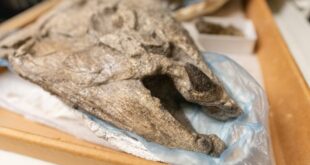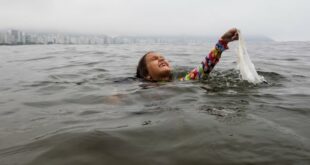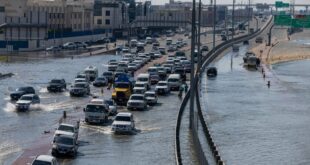The reef, discovered in 2021, is the only live coral reef in Canada's Pacific

Federal authorities have closed Canada's only known live coral reef in the Pacific Ocean to all commercial and recreational bottom-contact fishing.
Fisheries and Oceans Canada says the indefinite closure came into effect on Feb. 14 for the Lophelia Reef, located in the Finlayson Channel of British Columbia's Central Coast, about 500 kilometres northwest of Vancouver and 200 kilometres directly east of Haida Gwaii.
The department says the reef was first discovered in 2021 and is the "first and only" known live coral reef in Canada's Pacific, as well as the most northern known coral reef in the entire Pacific Ocean.
Officials say that while the area is remote and not widely fished, there is evidence of damage to the coral, likely due to bottom-contact fishing.

The Fisheries Department says the closure is needed to protect the "globally unique" site that is both environmentally sensitive and culturally significant to the Kitasoo Xai'xais and Heiltsuk First Nations.
The coral reef is currently being assessed for a Parks Canada national marine conservation area reserve.
"Protection of the unique habitat of this Lophelia reef and all the life it supports aligns well with our Nation's world view and laws," K̓áwáziɫ, Marilyn Slett, elected chief councillor of the Heilstsuk Tribal Council said in a written release. "Everything is connected and everything has a right to live in a healthy environment that supports healthy ecosystems and healthy populations that is free from unintended intrusion of destructive fishing practice."
'Like a tropical coral reef in the dark': Scientist
Cherisse Du Preez, head of the deep-sea ecology program with Fisheries and Oceans Canada, called it "an astonishing find," describing the reef as a "hidden hotspot … like a tropical coral reef in the dark."
Hidden in the reef, she said, are crabs, octopus, schools of fish and, potentially, the only place in the world where coral reefs and glass sponge reefs co-exist.
Its discovery and mapping was the result of a collaboration between the Department of Fisheries and Oceans, the Kitasoo Xai'xais and the Central Coast Indigenous Resource Alliance (CCIRA), which includes several Central Coast First Nations.

"Wherever these corals live, they help build habitats that provide nurseries, refuge and feeding grounds for other marine wildlife, and help enhance local biological diversity and abundance," the CCIRA said in an online release from 2021.
"Similar to tropical coral reef species, Lophelia leave hard calcium carbonate skeletons, on which the next generation can grow."
Du Preez said the reef would join "sea wolves, spirit bears, sea lions and herring," among the wonders of the oceans of B.C.'s north and central coasts.
*****
Credit belongs to : www.cbc.ca
 MaharlikaNews | Canada Leading Online Filipino Newspaper Portal The No. 1 most engaged information website for Filipino – Canadian in Canada. MaharlikaNews.com received almost a quarter a million visitors in 2020.
MaharlikaNews | Canada Leading Online Filipino Newspaper Portal The No. 1 most engaged information website for Filipino – Canadian in Canada. MaharlikaNews.com received almost a quarter a million visitors in 2020.







